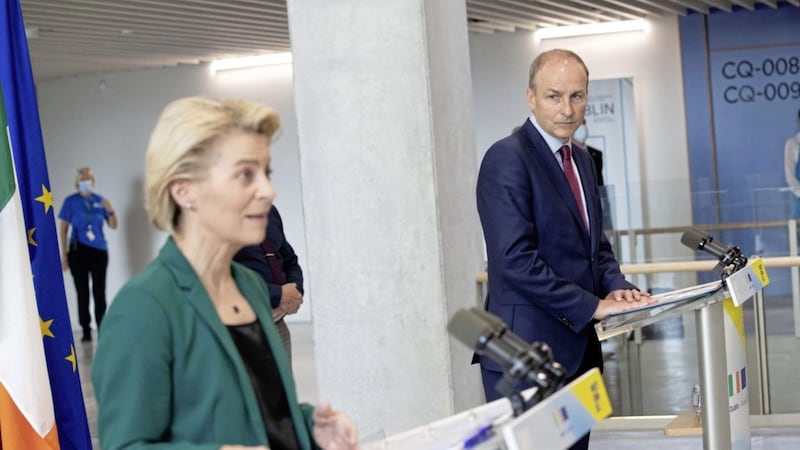While northern nationalists enjoy pointing out that Boris Johnson betrayed unionists by agreeing to the Northern Ireland Protocol, they do not yet appear to appreciate that the EU may soon abandon them, by accepting a much diluted form of that same protocol.
To date, Sinn Féin and the SDLP have adopted a not-an-inch attitude to the protocol’s restricted supply of goods from GB to the north, even though it affects nationalists just as much as unionists.
While they undoubtedly see their loyalty to de Valera’s “Burn everything English except their coal” as both noble and inspiring, it does not address, for example, the possible denial of 2,000 GB-produced medicines to Northern pharmacies by December. (Dying for Ireland may take on a new meaning.)
The solution to the Irish Sea border (and you may not think it needs a solution) is for the UK and the EU to agree that goods from GB to the north, which are destined solely for the north, should not be subject to checks. Since this includes the vast bulk of British-based goods, most of the protocol’s problems could be removed overnight.
That still leaves the need for checks on those goods to be progressed from the north to south. The answer here is equally simple. The EU and UK could agree not to export any goods to each other which do not conform to their respective standards.
That is the solution proposed in a recent paper by Britain’s chief negotiator, Lord Frost. While it is not the UK’s intention to ditch the protocol (which is what most unionists want) Frost essentially proposes a new protocol.
Hemmed in by legislation from his own parliament, Boris Johnson had a choice of delaying Brexit (which was an election promise) or agreeing to EU demands for an Irish Sea border. He opted for the latter, even though it was much more hardline than it had to be, believing he could re-negotiate it later. This is what Frost is currently aiming for.
Nationalists insist that Johnson agreed to the protocol, so it must remain unaltered. Good point, but the EU did not dismiss Frost’s ideas in the same forceful manner as it has rejected every other British proposal in recent years.
More significantly, Taoiseach Micheál Martin said nothing. Johnson briefed him before Frost’s paper was published. Even the EU’s darling boy, Simon Coveney, stayed silent, which suggests that the EU position may be about to shift.
Of course, the explanation could be that EU officials just wanted to go off on their holidays and leave the matter until September. In that case we can expect another UK-EU confrontation.
But apart from a point of principle, the EU has little to gain from a stand-off. The threat to its single market from the north is slight and a prolonged row runs the risk of Britain invoking Article 16. This allows either side to suspend parts of the protocol in the event of “serious societal or economic difficulties”. Britain would appear to have reasonable grounds for doing so.
The only reason for the EU to dig its heels in on the protocol would be to support northern nationalism’s view that the Irish Sea border is a stepping stone to an economically united Ireland. Fianna Fáil and Fine Gael have no great interest in pursuing Irish unity, hence Dublin’s silence.
So will Brussels support the united Ireland campaign by SF and the SDLP (and effectively make Stormont’s next election a referendum on the protocol) or will they negotiate with Frost?
We will have to wait and see, but right now the signs are that the EU will do a deal with the UK. Like the French fleet which arrived in Bantry Bay in 1796, but did not go ashore because of a storm, northern nationalists may find that the EU’s fleet will want to avoid another storm and sail away in the wind.
History is always helpful in anticipating the future.









